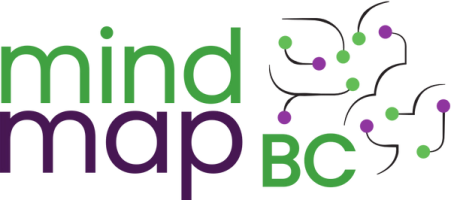Summary
Relationship counselling
Individual counselling
Sliding Scale Available
LGBQ+ Affirming
Trans Affirming
 Wheelchair Accessible
Wheelchair AccessibleOnline resource
Remote services
I believe that in the hardest moments of our lives, we deserve to be supported, believed, and honored. As a proudly queer and queer-affirmative counsellor I am experienced in helping individuals and their loved ones explore their gender and sexual identities. Everyone is unique but major themes that I often work with are internalized homophobia and transphobia, social trauma & anxiety, gender dysphoria, family issues, queer relationships, boundaries, and childhood traumas.
I also work affirmatively with neurodiverse folks and am invested in adjusting the counselling process to meet the needs of folks on the spectrum and with ADHD.
My background includes years of supporting survivors of abuse and assault in ways that center safety, validation, and removing blame.
While creating a validating and warm relationship is the most important part of my approach, the modalities I integrate are:
Acceptance and Commitment Therapy (ACT)
Dialectical Behavioral Therapy (DBT)
Cognitive Behavioral Therapy (CBT)
Eye Movement Desensitization and Reprocessing (EMDR)
Feminist-informed Narrative Therapy
Animal-Assisted Therapy
& Trauma-Informed Mindfulness.
I take a flexible and imaginative approach to each client's needs. Activism, humility, continual learning, and advocacy are important parts of my life and my commitment to my clients. My philosophy centers compassion, acceptance, and humor. I am strongly kink, poly, and sex worker allied.
Want to learn more about this service’s work with Two-Spirit, trans, LGBQ+ people?
We invite all service providers listed on MindMapBC to answer the following questions. These questions were developed in collaboration with community members, researchers, and mental health and other service providers. They're intended to help us understand what a service provider or organization is doing to affirm and support sexual and gender diverse service users.
See below for responses for this listing.
Want to learn more about our screening questions and filters?
Are the forms used in your practice inclusive of various sexual orientations and gender identities (e.g., opportunities to fill in pronouns, etc.)?
—Yes
Do you collect and use preferred names (rather than legal names) for all communications?
—Yes
Do you and your colleagues ask about pronouns and use them appropriately?
—Yes
Are you and your colleagues aware of what specific barriers may exist for trans individuals accessing your services?
—Yes
Are you and your colleagues aware of what specific barriers may exist for Two-Spirit individuals accessing your services?
—Yes
Do you offer Indigenous 2S/LGBTQ+ specific resources, for example Indigenous Elders or Knowledge Keepers?
—No
Are you and your colleagues comfortable asking relevant questions about gender identity and sexual orientation?
—Yes
Are you and your colleagues aware of what specific barriers may exist for LGBQ individuals accessing your services?
—Yes
Can you and your colleagues distinguish gender/identity dysphoria/distress from mental health conditions?
—Yes
Do you and your colleagues have experience working with people who identify as living with a disability or chronic illness? Please tell us more about your experience and any training you have received. (For example, do you have experience working with people with diverse physical or cognitive abilities, or those who are living with specific chronic illness(es)?
—Yes, to some extent
I am most strongly experienced with neurodiversity such as folks with ADHD and/or autism. My priority has been adjusting therapeutic techniques to be more accessible and applicable to folks with ADHD and/or autism. I am always seeking to learn how I can adjust my practice for accessibility.
Does your practice have gender-neutral washrooms?
—No
I offer all online counselling.
Are there clear anti-discrimination policies that include gender identity, gender expression, and sexual orientation in your organization or practice?
—Yes
Are all individuals involved in service provision actively engaged in decolonizing their practices and/or organization? If yes, please type below what actions you and/or your organization are taking.
—Yes
As a white settler my commitment is to dismantle white supremacy in myself, my practice, and my community. I am in the process of becoming a FNHA counsellor and am committed to lifelong learning how I can be in solidarity not only with Indigenous clients but the Nations whose lands I occupy. I am a social and financial supporter of Land Back initiatives.
Are all individuals involved in service provision actively engaged in anti-racist practices, policies, and systems in their care model?
—Yes
Last updated: August 18, 2025
Request changes —

